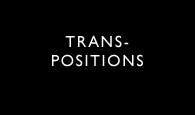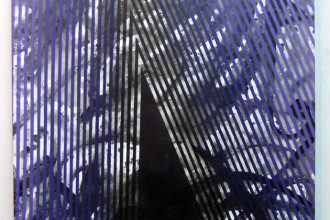My experience with Wonder Woman began in a gigantic Texas cinema on a hot summer afternoon with nothing to do. I did not come with much expectation. Two friends were meeting me there, and all three of us have excellent taste. So much to my surprise, all three of us loved it.
At some point hroughout the Wonder Woman movie (Warner Bros. Pictures, 2017), at least one of us was crying. We left virtually speechless, and then decided to meet up immediately for tea, where we talked for nearly three hours. We had each had an experience that led to serious reflection.
If you would like to understand the experience of women in ministry who struggle, and to find iconic material for a noble ideal, take some pastoral theological cues from Wonder Woman. At least, you can take the cues my friends and I took, from which we found renewed courage for our own vocations and refreshment for our imaginations, hopes, and prayers.
But before you all go flocking off to Amazon Prime to rent this film, please know it is not an amazing work of art. This movie has everything you expect a big-budget superhero flick to include: cheesy dialogue, big special effects, impossibly smoking hot male and female leads, and a philosophically watery conclusion about “love” and “believing in yourself” and “we all have the light… and the dark…” — wait for it– “within us.”
So what made us such fans? What made me (a grown woman in my thirties) drive to the mall that week to purchase Wonder Woman paraphernalia? (There was almost none, by the way, though the movie was still new to theatres — but plenty of Superman and other male Avengers gear.)
 The two friends with me were both women. And that had something to do with it. Seeing a hero whose flesh resembles our own was a plus. But each of us also has theological training — an M.Div. and a D.Min. between us — and all three of us either are or have been ministers in some capacity.
The two friends with me were both women. And that had something to do with it. Seeing a hero whose flesh resembles our own was a plus. But each of us also has theological training — an M.Div. and a D.Min. between us — and all three of us either are or have been ministers in some capacity.
As highly trained women in church leadership, trying to eke out vocations of service, and finding everything from subtle roadblocks to landmines exploding in our vocational paths, we identified strongly with Diana, the fierce and cheerful virgin warrior from Themyscira whose job it is to battle the devil. And we badly wanted to be like her.
We first loved her for an important reason that her comic book fans love her — her femaleness and femininity. It is nice to see a lady among the superhero dudes! But there is something about the way she inhabits herself that flabbergasted us. She is funny without being ironic, credulous without being a dingbat, intellectual without posturing, voluptuous and beautiful to gaze upon without lacking agency or power.
Granted, Diana grows up on a sheltered island inhabited solely by other divinely created female half-gods, which, I admit, sounds like a decent childhood to get you started.
But we felt serious nostalgia for Diana’s capability, and were feeling our loss. This was just before #metoo exploded and Christians were asking, ‘How do we respond?’ To witness an adult woman operating under the power of unbroken innocence—as innocent as the most innocent victim, yet entirely unharmed—was a kind of bath for the imagination, and a cause of sorrow. Diana’s unselfconsciousness, even in the midst of getting oggled, laughed at, and with grenades lobbed at her, is beautiful. It is an innocent habitation of herself with a nostalgic whiff of Eden. Why did we cry? Because we wished that we, too, could live in this world now, not defenseless, but so utterly undefended. She is protected from within by divine virtue, by her very blessedness.
We do not have that innocence. We—my friends and I—lack nether sin nor experience. Even at my young age, even having come into ministry with no expectation of encountering a “stained glass ceiling,” incredulity, or massive levels of misunderstanding and bewilderment about my general person, I now have a few battle scars.
For women in spiritual, theological, and pastoral leadership, simply heeding our vocations is a stage of war. And not because we are imagining it, and not because we make it that way. The temptation is either to ignore it, think it is somehow a function of our own sinfulness or lack of virtue, or come with guns blazing in all directions, cease to forgive, and to become hard of heart.
A “thick skin” is useful, but it has a price. When and how did tenderness become a fault?
Sisters, do not come to ministry lightly—it is a dangerous path! You will not only have to fight the world, the flesh, and the devil, you will have to fight to just do your job.
Where can we go to see divine power and vocation at work in a woman who says no to evil and chooses the good, and remains without bitterness, fear, envy, false humility, fragile pride? As my friends and I captured a longing for the original freedom of the human female, we felt ourselves longing for God’s deliverance and power to bring about our own.
But let me also be clear about what we saw. Wonder Woman is a powerful woman who never brokers that power for her own sake. Again, in a sense, she never needs to (a loss that only God can return). But as we saw ourselves in the way she was constantly embattled, in the way Diana always drew first and hardest fire from the enemy, we also saw the grace that divine power can preserve.
In the trenches she is downright nurturing, open, tender, even as she is urgently outspoken against every injustice. And it is not because she plays nice. Between sword-swinging and cliff-diving, she loves animals and babies and ice cream because she does. Her flawless, fearless inhabiting of her own female body, and her own femininity (a recognizably feminine femininity — no deconstructionism or trouble with binaries here), does not make her experience either simplistic or necessarily framed contra male.
Femaleness is an addition to and a distinction from maleness, as maleness is an addition to and a distinction from femaleness—but it is not a competition. Diana’s vocation as a female in a world of war does not reduce her warrior training, cause her to “play stupid,” or make herself less of a presence to avoid intimidating men. Neither does she ever see herself as cast against them. The first time she sees a man, she grins in his face. She is full of wonder.
We agreed, too, that we were moved, were over the moon, about the maleness and masculinity of Diana’s male counterpart, Steve — an American dude who is trying to live out his particular vocation, too. In sharing the mission with Diana, there is virtually no power struggle and no displacement of either. Their interplay involves humor, learning, even a certain initial reticence about the legitimacy of the other’s calling. (Can they really get it if they do not see what I see?) But even before each is certain about the other, they submit to the other’s expertise and, to a certain extent, the other’s mystery, and finally to the fact that neither can win the war or survive without the other. Just like the Divine economy has been trying to teach us for millennia, true power is not a zero-sum game. It is an endless sharing, an endless giving.
 My friends and I were moved to tears by the seeming paradoxes Diana’s story embodied: her technical skill and grace, gentleness and deadly power, intellect and openness. It was her fullness, her capacity as a human being and a leader, which moved us, and the freedom and focus with which she is enabled to pursue her vocation. Nobody can stop her. No wonder when she is on the front lines, she is first to draw the enemy fire. No wonder the serpent came to Eve. When a woman is doing everything she is meant to, the devil takes note.
My friends and I were moved to tears by the seeming paradoxes Diana’s story embodied: her technical skill and grace, gentleness and deadly power, intellect and openness. It was her fullness, her capacity as a human being and a leader, which moved us, and the freedom and focus with which she is enabled to pursue her vocation. Nobody can stop her. No wonder when she is on the front lines, she is first to draw the enemy fire. No wonder the serpent came to Eve. When a woman is doing everything she is meant to, the devil takes note.
But despite Diana’s free, unshrinking and passionate obedience to Zeus, the depiction of the pure-hearted character was not perfect. The movie opens with Diana saying, ‘I used to want to save the world… but I knew so little then.’ In the end, it seems that disillusionment and a slight darkening of the perspective is necessary to ‘grow up’, to reach the fullness of one’s potential as a woman in the world — which, as we know from Genesis 1-3, it is not. Or at least, it was not.
However, as disillusionment is inevitable this side of the Fall, it is an actual part of growing up in this world, and even the most innocent One among us “became sin” and entered hell to scrape clean the very underbelly of our existence. The goal is no longer to maintain innocence as long as possible.
As women in church leadership, the possibility that Wonder Woman opened for us was the aspiration to the double-edged sword of serpent wisdom and dove-like innocence. Simplicity we may long for, but it is the paradox we need. Kind and lovely Diana is named after the goddess of the moon, of chastity — and how does one maintain joy in a world that assaults, even from the church, both the sexual chastity of women and the integrity of our bodies and minds? How do we negotiate our callings in an embattled Church, side by side with men, and very often (and often appropriately) under their authority, while remaining illumined, fruitful, fully reflecting the divine lmage? And how do we do this when the Church we love and the world we live in throws us back continually into ambition-freezing, mind-numbing midnight of self-doubt, where if we do not defend ourselves in the vestry meeting, if we do not make it one hundred percent clear that we are in charge of this departmet and that it is in good hands, if we do not defend our emotions, bodies, reason and will, then no one will?
‘It is for freedom that Christ has set us free,’ which ultimately means freedom from self-definition, self-protection, and self-consciousness. This is because it is Christ who fights for us, Christ who sets us free.
Yet (or perhaps, therefore) women and girls need female images of Eve, Christ, the Christ-like Virgin Mary (with whom our Lord apparently shares his entire life and one hundred percent of his DNA), and other saints, in order to know what is possible in discipleship, and how to lead, fight, strategise, use anger well, and conduct serious spiritual warfare on behalf of others, should they be called to do so. We live in an urgent age.
Who knows who will be called to fulfill the Lord’s work? There are simply some things women can do in the name of Christ that men cannot. There are some places they can go, and some points of access they have that men, without a supernatural pass card, do not.
Wonder Woman exemplifies sacrifice through obedience without a single diminishment of self. She honors the gods unquestioningly and works over, under, and alongside human men with interest, wonder, humour, uncluttered frankness, and undisguised joy. By watching her example, we longed for Eden, longed for Christ’s fullness to be revealed is us, but also imbibed something, however briefly, of her lack of bitterness, and walked away praying to be freed from any bitterness we had allowed to take root in ourselves.
Because somehow, as the seed of Eden was carried by the Son of God throughout a human life, under sin, unto death, it is now offered afresh through him, a new Spirited innocence blossoming from that dead seed as the gorgeous, gentle, fierce alternative to a brutal and tricky world. And rather than “equality with” being something to be “grapsed at,” that unimaginable declaration by the Most High, “You are gods” becomes the reality of theosis in each of us, and we may work cheerfully in His vineyard and fight ferociously in His name with no regret, no self-consciousness, and no malice.
We may even find ourselves so powerfully defended by this identity alone that we do not even once choose to drink from the well of wrath, that even our anger is clean and pure, that we can fight with less armor because our skill in fighting is greater and wiser, and that as we work and fight we also play and obey and give in, that we might not suffer even the slightest loss of wonder.
We may even become guardians of wonder itself.




